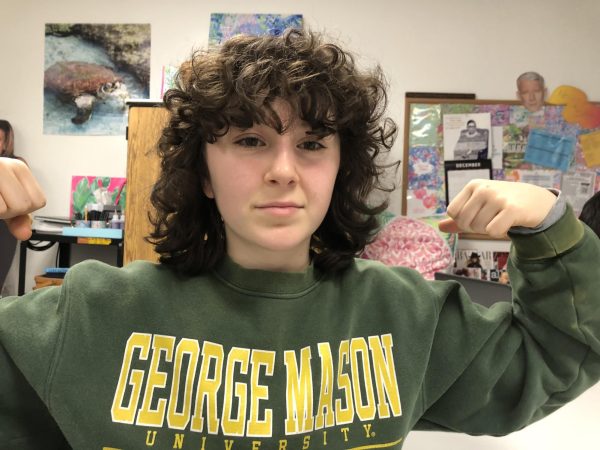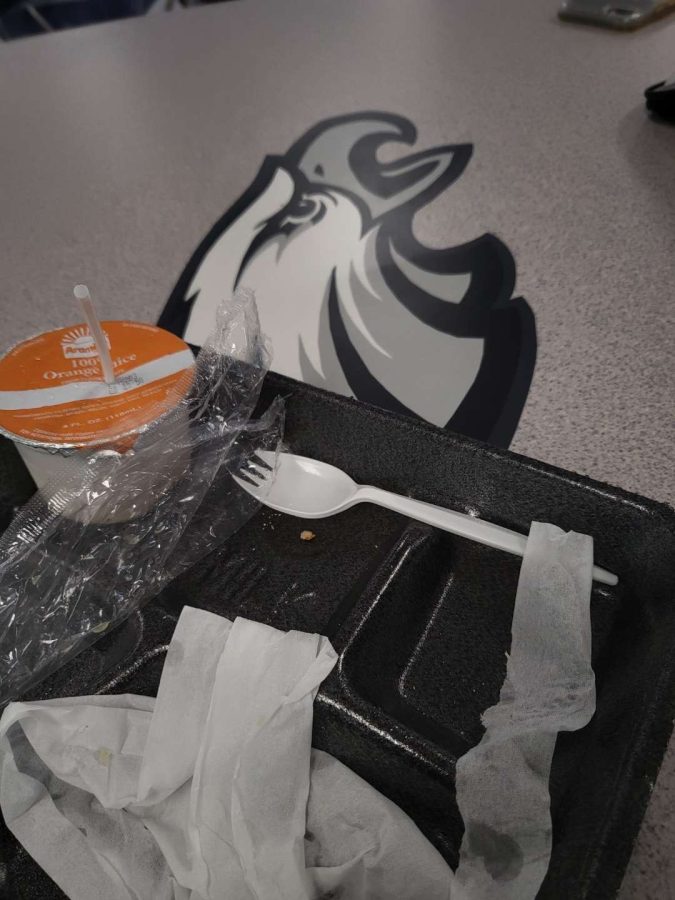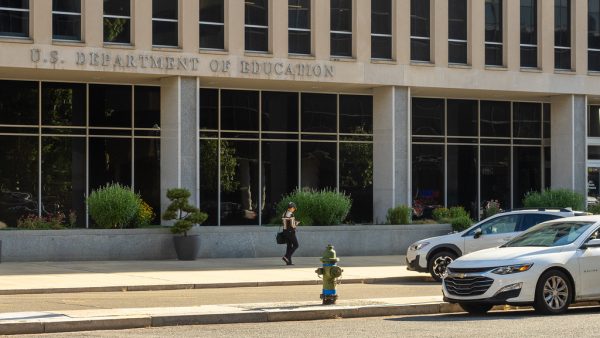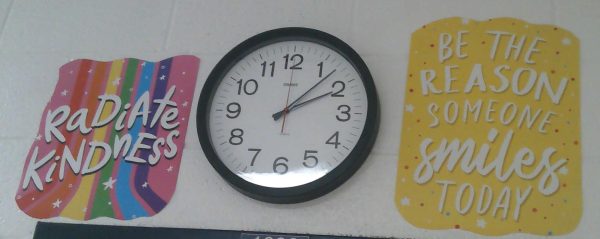Does Osbourn Say Yes To Sustainability?
Plastics affect our earth critically and have been a big problem for centuries, and while some have tried to make a change, for such a big issue it is alarming how many people turn a blind eye to it. Plastic resources are globally used everywhere, by everyone, and even though it is a convenient and easily disposable resource, we might need to start making changes in order to save our environment from spiraling.
A report from a California school showed that they produced about 562,442 tons of plastic waste each year, because of the number of unrecyclable products found in that school building. Seeing the issue in retrospect, and reflecting on it, has some teachers concerned about what results will come from our ongoing plastic production.
“So as you probably know plastic is a by-product of the petroleum-making process which is already harmful to the environment. Plastic also takes forever to decompose. For example, plastic water bottles can take up to 450 years to decompose,” said former science teacher, Eric Godwin. “When there are plastic products that are littered in our ecosystem it can be very harmful to the organisms that live there. Microorganisms such as bacteria can not break down the plastic and macro-organisms such as birds, turtles, and others could consume or get stuck in the plastic causing self-harm.”
When it comes to Osbourn, overall there is still work to be done ecologically in order to reduce the number of disposable products that enter, and the amount of waste that exits. Even if it is minor changes that slowly convert us into a more eco-responsible school, there are many possibilities, and options open to build off of. But the most vital part of working towards being a more sustainable school is having students, and teachers who are motivated and feel they are environmentally aware of what is actually happening in our world.
“I try my best to be environmentally aware, but I’m sure there are lots of things that I don’t know,” said freshman Sophia Vandivere.
“[Do you consider yourself environmentally aware] Yes, I am super eco-friendly,” said junior Maryam Ahmadi. “I always think about the impact that we might be making in our environment, but I try to do my best to have a positive impact with the simple things that everyone can do.”
One good thing that Manassas City Public schools had been doing in the past, was recycling. Sadly over the years, as students began to neglect the bins, abusing their purpose, they had to be removed. Many students and teachers believe they should be brought back, in hopes of the newly aware population using them for their correct purposes. Recycling could possibly be a great start to becoming a more environmentally-sound school.
“We need to make it so people don’t have to go out of their way to recycle,” said freshman, Alice Hertz. “Add a recycling can for every trash can.”
“[We should] Hold a recycling bin decorating contest, Get creative with recycling bins. Schedule a trash pickup day. Add indoor plants,” said junior Maryam Ahmadi.
But even before we add these recycling bins back, we need to make sure the past doesn’t repeat itself. Knowing how recycling bins were treated prior, some feel we even need to be sure of the fact that they’re going to be used correctly before putting forth the consideration, to get them back in the buildings.
“I would say the cafeteria, classrooms, and hallways [are where we need the most improvement]. We used to have recycling, but people used the recycling bins for trash so often that it became pointless to continue,” said English teacher, Eryn Reece. “The first thing we would need to do is have a culture where it isn’t ok to dump your trash wherever you want, like, desks, hallways, stairwells, etc. If we can be more conscientious of what we do with our consumables when we’re done with them, then we can start talking about things like recycling and using reusable materials.”
It is common to believe we only need to make physical changes in order to get people more motivated to become environmentally aware, and yes that is important, but educational factors are also a factor that needs to be included. Overall in the classroom, very few times are global issues talked about. We stick to a core curriculum, that sometimes seems to shy away from ongoing issues. A possible solution to getting students educated on ecological issues is bringing it up. Exposing kids to these real-life affairs that are going on in our world. Many agree that we are not confronted enough with this information in the classroom, and because of that, students are not aware of what negative effects we might be having on our planet.
“[How can OHS improve is] Education. Classes don’t talk much about climate change, or environmentalism generally, which contributes to a population ignorant of one of the biggest issues facing the human race,” said OHS and Governor School alumni, Zane Vandivere. “We should somehow integrate discussion of/learning about environmentalism into core classes. Not sure how, but that is why I am not a school administrator.”
These past few years, dealing with the COVID-19 pandemic caused a major spike in pollution with the immense use of masks, gloves, wipes, etc. But still, there are positives that have come from it.
“Before students came back after the shutdown, we bought these robot-looking things that you can put into a room to disinfect it. It uses UV light, so we use fewer chemicals and consumable paper towels and wipes to clean. We were also one of the first schools in Northern Virginia to start using one-to-one computers, which drastically lowered how much paper we use,” said English teacher, Eryn Reece reflecting on the pandemic’s impact.
That is just one of the many things Osbourn has done to be an overall more resource-efficient school. Even when we reflect, and see room for improvement, it is still beneficial to applaud what good things we have done so far on our journey to become a more environmental school.
“I think Osbourn does a good job with the refillable water bottle stations, so people aren’t throwing away their plastic bottles,” said senior Jahquez Salmon.
“I think OHS does a pretty good job on managing its plastic use and products. When it comes to our cafeteria plastic use, I know our student body does a great job of using water bottles that are refillable/ reusable instead of plastic ones, so they are not used as often. The milk cartons are not plastic either, which is great,” said science teacher, Eric Godwin.
Overall, even when the gradual progression of sustainability is shown, it can give a sense of hope for our future, and its generations. Osbourn High School acknowledges and has made many contributions to the environment, which is great and is something we should keep doing in the future.
“The environment around us is not only our home but everything that keeps us alive. From the food we eat, the water we drink, the air we breathe, our shelter, and more, it helps us to survive. Therefore, caring for the environment is something that should be inherent in us,” said junior Maryam Ahmadi.

My name is Amelia, this is my second year in Journalism. Journalism gives me the freedom to write about what I am passionate about, and that is what I...

Hi, I'm Madina Habib an OHS freshman (9th grade). I hope that in the future I hope to write articles on OHS students and their interests, and important...







Jacquiline Biddier • Nov 10, 2022 at 10:48 am
I love how much information was in this article. I think this will help people see how harmful their actions are to the environment, and maybe the school will start recycling again.
Kai • Nov 4, 2022 at 8:44 am
I loved how informative this article was. It really brought attention to the little things people may do that they don’t realize is harmful. I really hope they add back the recycling bins so we can help be more sustainable for the environment. I also hope we can get rid of the amount of plastics we have in the building.
Dulce Lemus • Nov 3, 2022 at 10:44 am
I really like that you made a article about this topic. I feel like people should really consider recycling more! Your quotes are very good and this article is very well put.
Patrick Massey • Nov 3, 2022 at 9:07 am
The environment is one of the most pressing issues out there and providing facts like this is great! Love the article.
Yosis Mendez • Oct 5, 2022 at 11:17 am
The article has a nice potential. The author uses lots of facts. This article has many sources and uses very good quotes. Its very obvious that the author had much patients and asked the right questions as to for her article.
Keyla Rivera • Oct 5, 2022 at 8:06 am
I agree with your follow up after what the English teacher said because even if we make changes and add more recycling bins most people still won’t recycle and instead continue to do the same and be careless. In my opinion in would help more to first educate the students on why it is important to care for our environment maybe when they understand why and how it affects us students will be more motivated to help.
Michael Juarez-Sesam • Sep 27, 2022 at 1:39 pm
Definitely agree with the statement of the article. I like how you really spoke about the history of recycling and how our school tried but failed at recycling. I agree with the topics stated in the article and I would definitely love to see another one talking about if the school has attempted to do anything regarding this topic.
Charles Gray • Sep 23, 2022 at 10:14 am
I’m very proud of the work you’ve done to make the world a better place for us all. Keep motivating others with your beautiful writing style. If you change the way people view the world it can help them become stewards of our precious earth.
Marcus Mclean • Sep 23, 2022 at 10:14 am
I think this article was great at bringing awareness to these big issues and help people realize that this issue can be resolved. Overall the way you wrote this article was amazing.
Jordyn • Sep 22, 2022 at 8:59 am
I think y’all did really good on the writing, the tips for new kids/freshmen, it especially helped me kind of fit in a little bit, still trying to make friends and get good grades and such, but I think it’s good y’all KNOW what y’all talk about because that’s what makes a good reporter/journalist.
So Thanks,
J.L
Alondra Marquez • Sep 21, 2022 at 4:06 pm
Yes! This really is an issue in today’s world I’m so glad you decided to do an article about this hopefully this goes around for people to read to spread awareness so we can all do something to stop this from growing and getting worse I loved the article it was overall amazing!
Eric Godwin • Sep 21, 2022 at 2:59 pm
This was a very informative and impactful article. I love how this article states facts and opinions from a variety of sources. I see this article as a “call to action” for change in not only our physical environment, but our emotional environment as well. As part of the title states, we must say yes to sustainability!
Alejandra Chavarria • Sep 21, 2022 at 2:10 pm
This article is on an important topic, and I think this is a great example for other writers. This article provides information others should know and be aware of.
Yaritza Martinez • Sep 21, 2022 at 1:46 pm
I think you did really well on conveying the issue on how plastic affects earth. I also really liked liked how you showed what Osbourn is doing to be a little bit better on our use of plastic. I loved how you put many quotes that were diverse and added to the topic of the article.
Aziza Zarrincalaki • Sep 21, 2022 at 1:19 pm
I feel this article contains so much important information. Not only is is informative but it offers solutions and opinions of teachers, students, and even alumni.
Ethan Hudson • Sep 21, 2022 at 12:43 pm
I think that your article is very good and very clear to the other reader as well. It describes your topic about recycling in our Environment and keeping it safe and I really like that. I thought all your quotes and grammar and spelling was good too. What inspired you or made you pick this topic? So I thought your article was strong and clear and it was very good. Also one more thing is that I thought that it was really good that you gave a lot of information and a lot of quotes too.
amelia breeden • Sep 21, 2022 at 4:18 pm
I would say my inspiration came from my passion for wanting to keep the earth clean. Outside of school I pick up trash, and do as any things as I can to reduce the amount of waste I produce!
Madina Habib • Sep 21, 2022 at 11:06 am
I really like how you included a quote from a variety of people, specifically I liked how you included a quote from a former science teacher.
Eric Godwin • Sep 21, 2022 at 2:53 pm
Well thank you Madina!
Gwendolyn B • Sep 20, 2022 at 12:17 pm
This article is a great way to get people to understand with the problem of plastic in our environment.
Kristen Alvarez Castro • Sep 20, 2022 at 12:11 pm
I really like this topic because I think it needs more awareness.